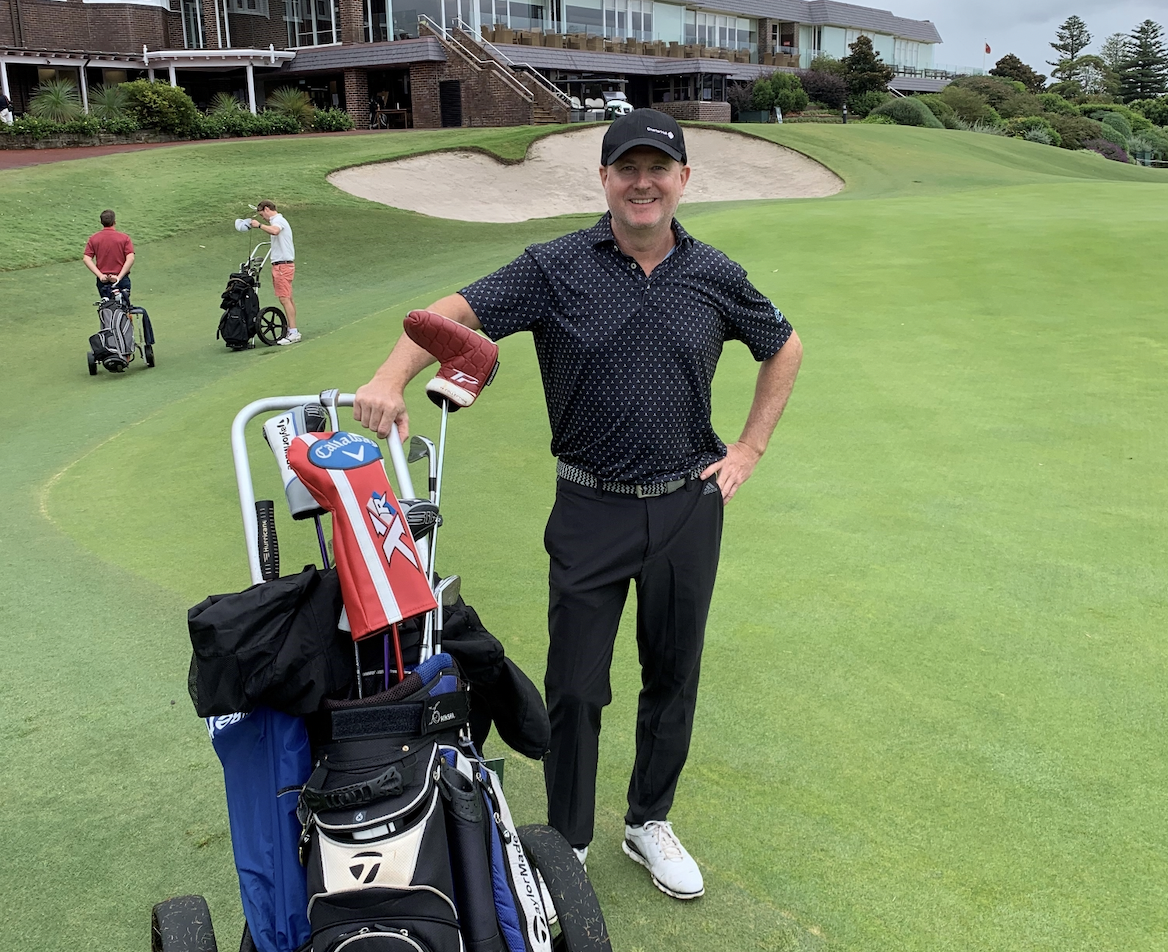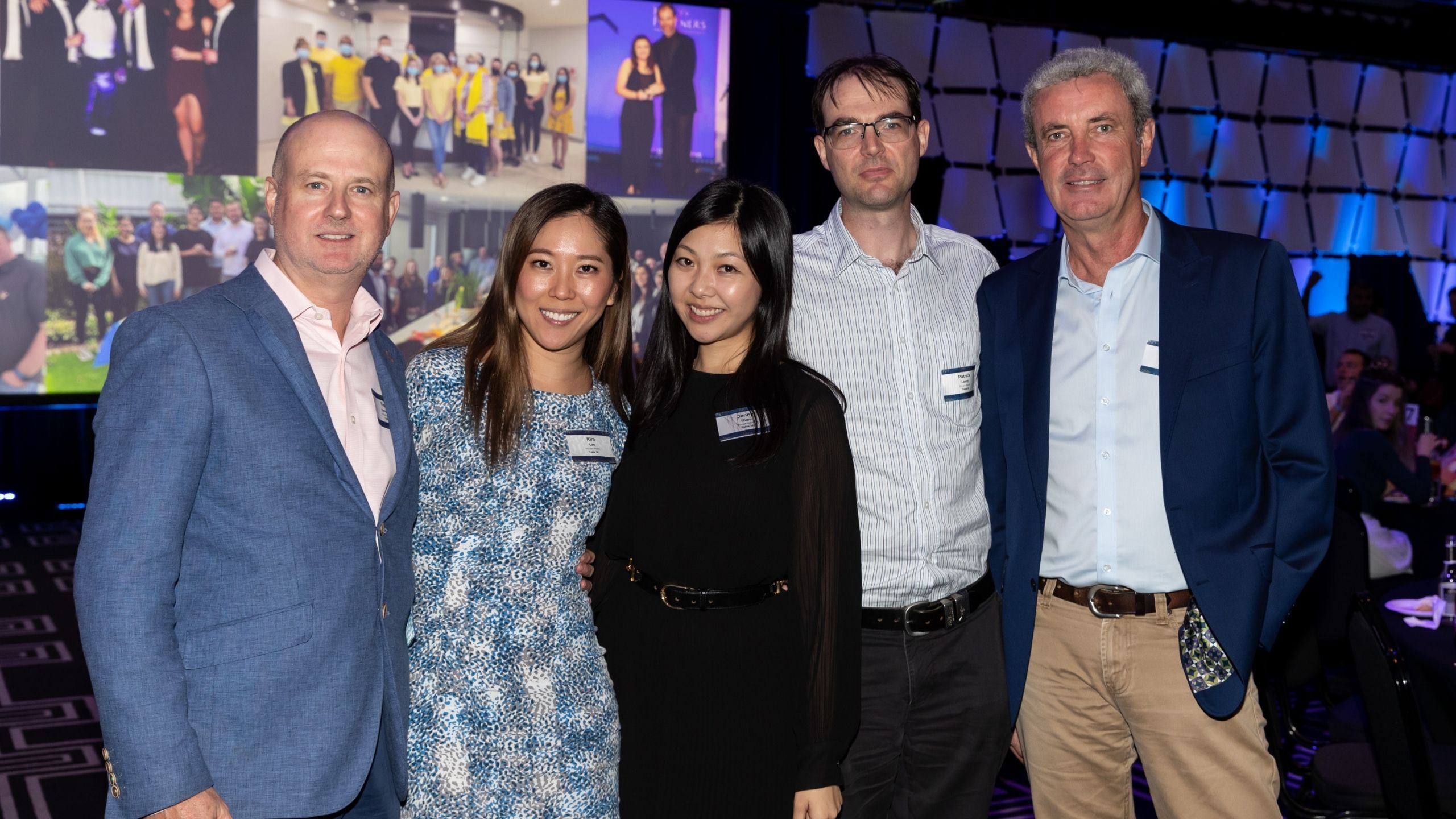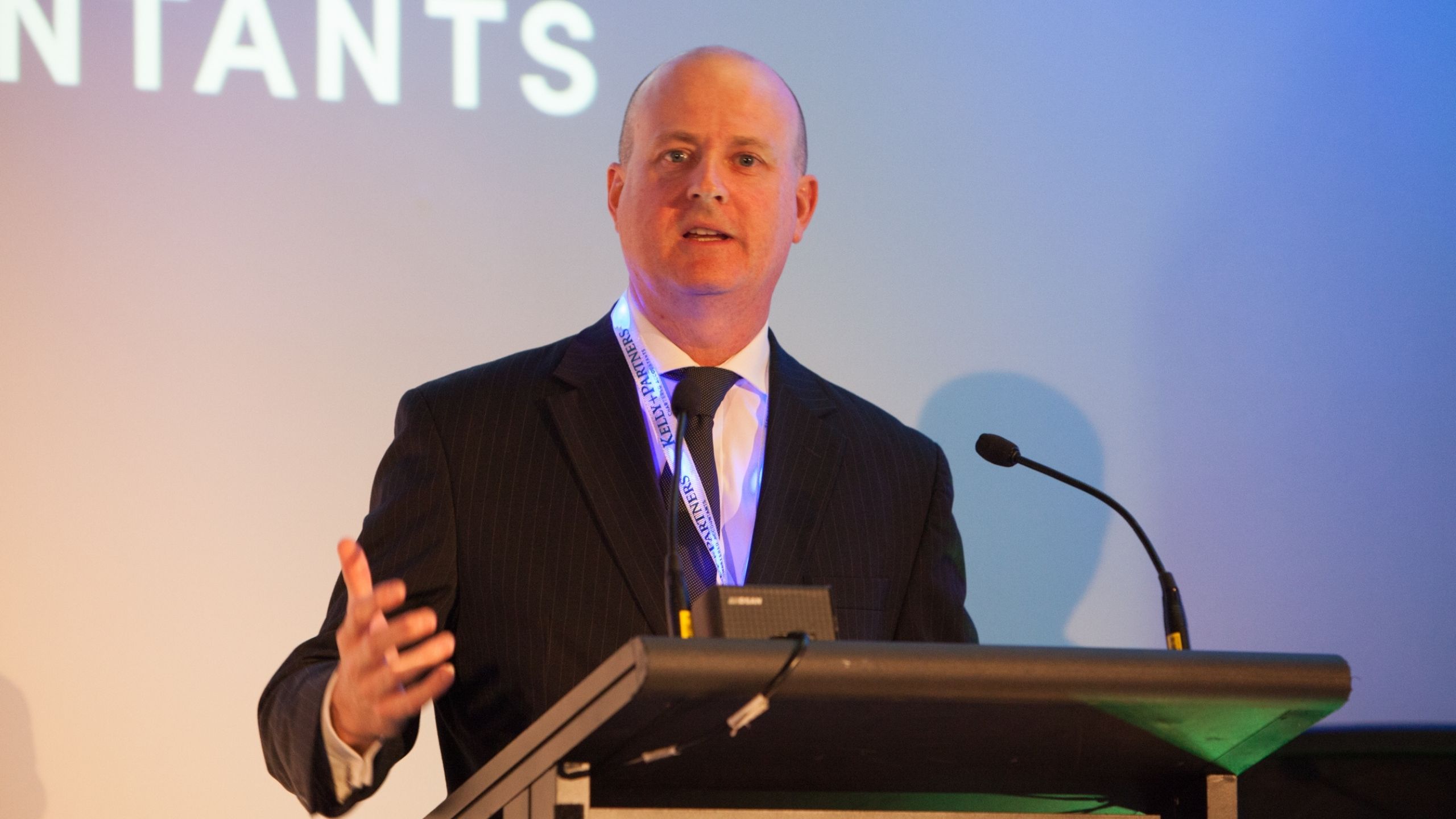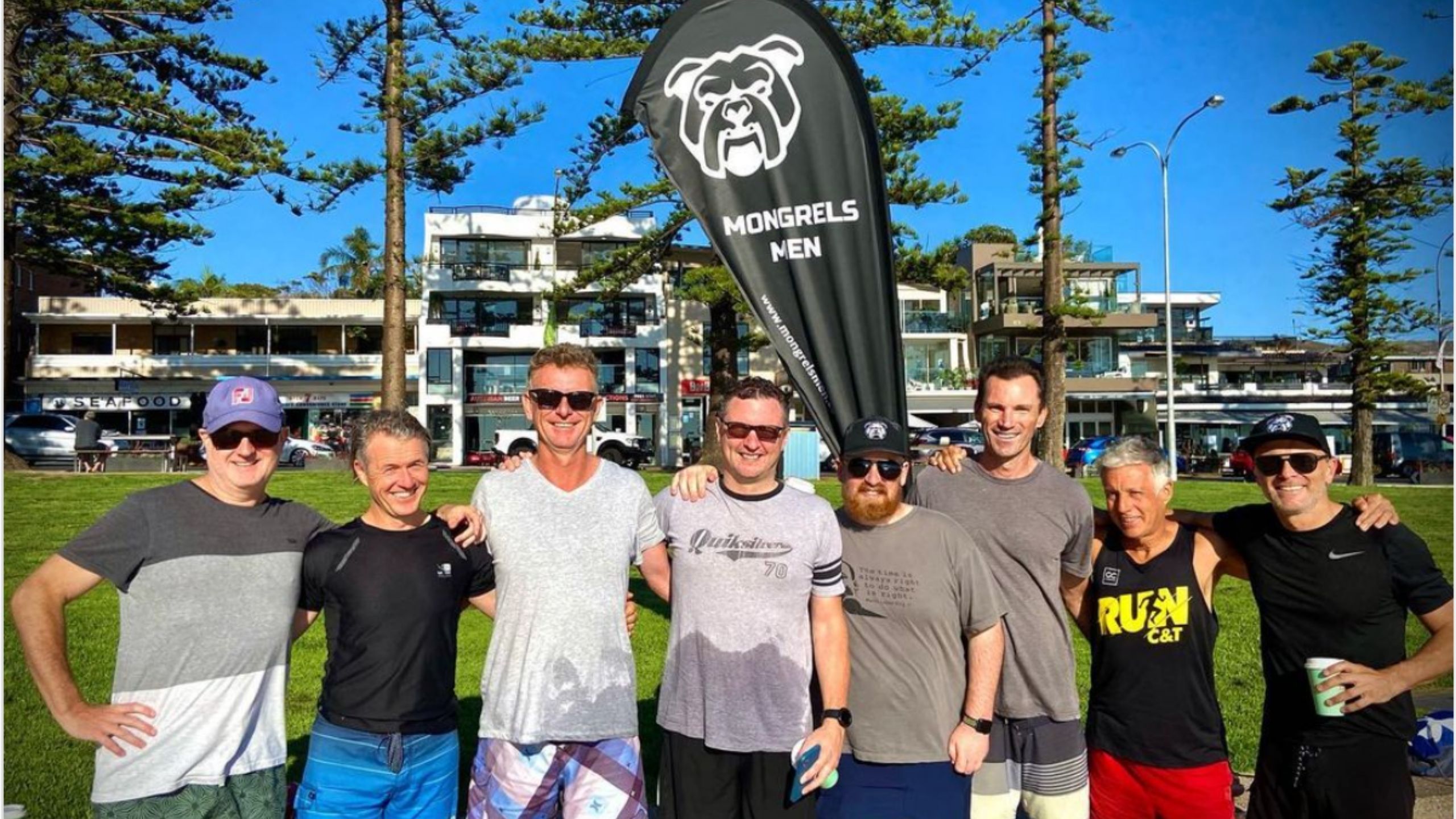Meet Trent: His biggest concerns are scams, charlatans, unlicensed advisers, and reducing his handicap
Trent isn't your typical adviser (or golfer, for that matter). He spent over a decade working in global investment banking and capital markets in Sydney and Japan, before shifting to a career advising sophisticated wholesale investors across Hong Kong, Singapore and Sydney.
In 1993, he started out with a Japanese investment bank and later worked for European commercial bank WestLB AG. In 2000, he was transferred to Tokyo, to run non-Japanese yen funding for the group within the Asia Pacific region. A decade after his career began, he nabbed a role with Citigroup Private Bank, where he advised several of the region's wealthiest families and entrepreneurs.
After returning to Australia in 2009, Trent worked with both Merrill Lynch and BT Financial Group in senior investment advisory roles. But in late 2016, he was approached by the founder of Kelly+Partners Chartered Accountants with an offer he couldn't refuse - to establish the firm's Private Wealth division.
"This was just prior to the Hayne Royal Commission and Brett and I both agreed that there was a better way for sophisticated wholesale investors to access independent general advice," he says.
"It took a lot of hard work and many long hours to get it established, but it was well worth the sacrifice as we now have a terrific service offering available to our wholesale investors."
Out of the bunker and onto the green, Trent also knows how to swing a golf club, with a current handicap of just 14 - which is only getting worse as he gets older, he divulges.
In this Meet the Adviser profile, Trent shares why he's concerned about the number of Australians who continue to be defrauded of their life savings by Ponzi schemes and scammers. Luckily, to help you avoid doing so, he shares six of his favourite "go-to" funds for client portfolios.
Financial adviser profile
- Name: Trent Doughty
- Age: 47
- Current firm: Kelly+Partners Private Wealth
- Years working as an adviser: 15 years as an adviser and 28 years in the financial industry.
- Investment goals: For me personally, it’s to build a long-term portfolio of companies that are run by owners and founders. I have great admiration for small to medium-sized business owners who get up early and stay up late working hard to make their business a success. It provides great inspiration for me to continually improve and do better. For my clients, it's ensuring they are getting the best returns for the amount of risk they are taking on. My clients aren't going to pat me on the back if the market is down 10% and their portfolio is down 9%. Capital preservation is key.
- Products used: As a firm, we have a rule not to sell products per se. We are in the advice business and like to ensure we are putting clients on the path to high-quality investment opportunities. We use a mixture of direct investments, managed funds, ETFs, LICs, and unit trusts to populate asset allocation models and portfolios. We have an open architecture platform, meaning we take on a more well-rounded approach to help clients achieve their return expectations and take a holistic approach to wealth management.
- Biggest portfolio holding: For me personally, it is Kelly Partners Group Holdings (ASX: KPG). I invested in its IPO because I believe in the company's strategy and business model. For our clients, it would be across private debt and credit funds including Solido Capital First Mortgage Fund and Metrics Credit Partners Funds. These investments have proven to be a great source of income returns with low volatility.

Why did you choose this profession and how did you get started as a financial adviser?
I wanted to genuinely help private business owners, high net worth individuals and families be financially “better off”. I felt my experience working in global markets for more than a decade would be an asset if transferred over to the wholesale financial advice arena.
I started as an investment adviser at Citigroup Private Bank Hong Kong, providing advice to Ultra High Net Worth Asian individuals and families across multiple asset classes including equities, equity derivatives, bonds, fixed income, and foreign exchange. Our trading desk was co-located with the global markets division of Salomon Smith Barney, which was a unique business model for private banks in Asia.
What do you believe makes you different to other advisers in the industry?
We only advise wholesale sophisticated investors, predominantly small to medium-sized business owners and high net worth families.
We differ from other advisers as we don’t subscribe to traditional asset allocation models. We are absolute return focused and benchmark unaware. We won’t allocate money to asset classes that we feel won’t keep pace over and above inflation or provide us with a reasonable return.
An example of this is, of late, we have very little exposure to cash, term deposits, international fixed income, government bonds or low yielding fixed-rate bonds. Just because the textbooks say you should have an allocation to bonds and cash equivalents, doesn’t always mean it is right at that point in time.
Those textbooks were most likely written when interest rates were at 5% and it was easy to make a decent risk free return. In fact, 60/40 investment portfolios have suffered steep falls in 2022, which is a glaring example of why you need to be nimble and move with market conditions, year in and year out.
Can you share a bit about your process for building portfolios and selecting investment products?
Our process has seven steps:
- Establish Investment Profile
- Allocate Assets
- Decide how to diversify
- Select investments
- Consider Tax implications
- Review portfolio
- Refine portfolio
All investments are selected by our investment committee, of which I am a member. A big part of our selection process is working with highly credible partners who have a long track record of success and a high level of trust. We need to see long-term outperformance over the benchmark, otherwise, we would be more inclined to use an ETF and save on fees.
A good example of this would be Paul Moore from PM Capital who has been managing money for more than 30 years. The PM Capital Australian Companies Fund has consistently outperformed the S&P/ASX 200 Accumulation Index, which is what you want to see if your clients are paying fees to access managed funds. I have known Paul on a personal level for many years and he is a very calm and measured individual, which is exactly the trait you want to see in a fund manager.
We do not invest in highly leveraged products, derivatives, margin lending, or make speculative bets.
.jpg)
Can you share two of your “go-to” funds with us?
Rather than just list two "go-to" funds, I have provided a list of some of our favourite funds for different portfolio exposures. We know all the portfolio managers of these funds on a personal level and have a high degree of confidence in their ability to provide solid risk returns outcomes for our clients. We also closely monitor their performance each quarter.
- Global Equities: Aoris Global Fund
- Australian Equities: PM Capital Australian Companies Fund
- Private Debt: Solido Capital First Mortgage Fund
- Property: Charter Hall
- Alternatives: iPartners Investment Funds
- Commodities: Tribeca Global Natural Resources Fund


How do you discover new managers and investment opportunities in a market saturated with products and issuers? What makes a manager stand out?
We mainly source our investment partners through our personal networks and industry relationships. We don’t actively seek out new investments as we feel comfortable with the partners we currently use.
What makes a manager stand out is their track record and the way they conduct themselves in their professional and personal life. We only want to deal with managers who have high integrity and more knowledge than we do on their area of specialisation.
At the end of the day, we are not selling products but rather our knowledge, expertise and excellent service.
A pitch deck from a fund manager arrives in your inbox, what happens next?
We receive pitch decks on a regular basis from fund managers both in Australia and abroad. They are referred to our investment committee for an initial appraisal.
In order to get to the next stage, they must have a significant track record of success and outperformance over their benchmark for a reasonable amount of time. If they can't demonstrate an outperformance over our existing manager panel, then it would be difficult to replace the incumbents with new managers.
We also don’t believe in paying high fees for easy to access securities. We are willing to pay fees to managers who specialise in certain areas that are difficult to access directly, such as property, private debt, private credit, private equity and alternatives.
How would you describe your personal investment strategy?
Like a lot of financial advisers, I spend so much time and energy focusing on my client’s investment strategy and portfolios, I neglect my own. I would describe my personal investment strategy as highly concentrated.
Warren Buffett once said, "Wide diversification is only required when investors do not understand what they are doing."
I have investments in property, private companies, alternatives, and of course, shares in Kelly+Partners Group Holdings (ASX: KPG).
.jpg)
What are the top three holdings, in percentage terms, in your personal portfolio and can you tell me a bit about why you hold each of these positions?
1. Kelly+Partners Group Holdings (ASX: KPG): I invested at the IPO stage because I believe in the company's strategy and business model. Brett Kelly is an excellent example of a successful founder continuing to lead a business.
2. iPartners (unlisted): Another founder-led business. I invested directly in this company as I believe in its strategy. The alternatives investment sector in Australia is growing rapidly and iPartners is well placed to provide platform and product solutions for wholesale sophisticated investors.
3. Openivest (unlisted): I also invested directly into this founder-led business thanks to its strong strategy. Openinvest provides investors with access to a range of model portfolios on a no advice basis. This has a significant role to play in helping Australians invest wisely into a model portfolio scenario as opposed to speculative day trading or the latest investment scam promoted on social media.
Could you tell me about your worst investment? How did you deal with this falling position or fund?
Babcock & Brown. I cut this position as the Global Financial Crisis was unfolding. I suffered a significant loss but it taught me a
good lesson - not to invest in highly geared investments. And, of course, to not be afraid of taking a loss from time to time if the outlook of the company is diabolical.
What conversations are you most frequently having right now with clients? And what is your answer to these questions?
The majority of clients are asking me about inflation and real rates of return. The real rate of return is the annual percentage of profit earned on an investment, adjusted for inflation. Therefore, the real rate of return accurately indicates the actual purchasing power of a given amount of money over time.
Believe it or not but people still have a significant amount of money in cash holdings, even when they are getting 0% interest. The only ones benefitting here are the banks, which are receiving cheap funding.
When I present to clients and prospects, I explain to them that if your rate of return is below inflation (3%) then you are in fact going backwards.
This tends to sharpen investors’ minds to actually take action and do something about it. The problem is with the RBA cash rate at 0.10%, investors need to move up the risk curve to outpace the inflation rate.
We believe the answer is to have a diversified portfolio of high-quality income-producing assets across floating-rate fixed income, private credit, private debt, property, and infrastructure assets. However, it’s important to note that all clients are different and some need to retain significant cash balances to meet pension payments or perhaps need cash for certain situations.
What are the most common mistakes you see in the portfolios that you inherit and how do you go about fixing them?
Over-diversification, portfolios that are overweight low yielding securities, or the duplication of positions and investments into underperforming funds.
A number of the portfolios we inherit have diversification for diversification’s sake. Recently we took over an investment portfolio that had more than 40 different funds, ETFs and SMAs.
There was a significant amount of duplication across the portfolio with no actual benefit and 25% of the portfolio was allocated to cash equivalents that were yielding less than 1%.
The international equity component was spread across multiple fund managers, all of which had underperformed their benchmarks over the past three years. It is very lazy and smells of the “cookie cutter” approach.
The way we would approach this is to condense the portfolio into half the number of holdings, remove duplication of positions, deploy cash equivalents into liquid, higher-yielding investments and rebalance the portfolio into better performing funds and ETFs. Once again, it's important to note that all clients are different and some need to retain significant cash balances to meet pension payments or for other situations.
If you could change one thing about the industry so that it can better serve Australians, what would that be?
It concerns me deeply that many Australians continue to get defrauded of their savings by scams, charlatans, unlicensed advisers, and Ponzi schemes.
Australians lost over $850 million to scams in 2020, a record amount, as scammers took advantage of the pandemic to con unsuspecting people, according to the ACCC.
If I could change one thing about the industry, it would be to see a push by industry bodies and governments to familiarise high school students with a basic level of financial literacy and awareness.
Increased education and awareness is the best way we can help all Australians avoid getting caught up in scams and frauds. Perhaps we could have financial advisers/retired financial advisers dedicate a few hours per year to educating high school students on the merits of saving, investing for the long term and avoiding scams?
Can you share a personal passion or ambition you have for your future?
I recently joined the board of Mongrels Men Health & Wellbeing, which was founded by a close friend of mine Tim Hewson (ING Australia). The charity was established to help improve the physical and mental health and wellbeing of men through sports, exercise, fitness, community, conversation and connection.
On average, nine Australians die every day by suicide. That’s more than double the road toll. Meanwhile, 75% of those who take their own life are male and over 65,000 Australians make a suicide attempt each year. In 2021, more than 3,500 Australians took their own life.
I am driven to do my small part, helping men open up and talk about their issues and problems in a safe and friendly walking group. This way they can learn to not bottle their emotions up until they spiral out of control.
.jpg)
Are you enjoying Livewire's new Meet the Adviser series?
If you enjoyed hearing about Trent's investing journey, please give this wire a 'like', and if you know someone who might enjoy the article, why not send them the link.
You may enjoy reading more of our Meet the Adviser and Meet the Investor interviews.
We are looking forward to hearing from more financial advisers in 2022. If you are interested in being profiled in our Meet the Adviser series, contact us using the email address below:
content@livewiremarkets.com
5 topics
1 stock mentioned
2 funds mentioned

